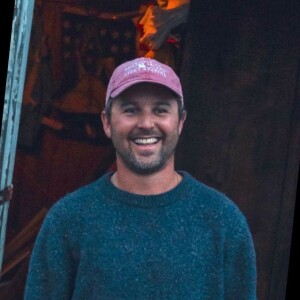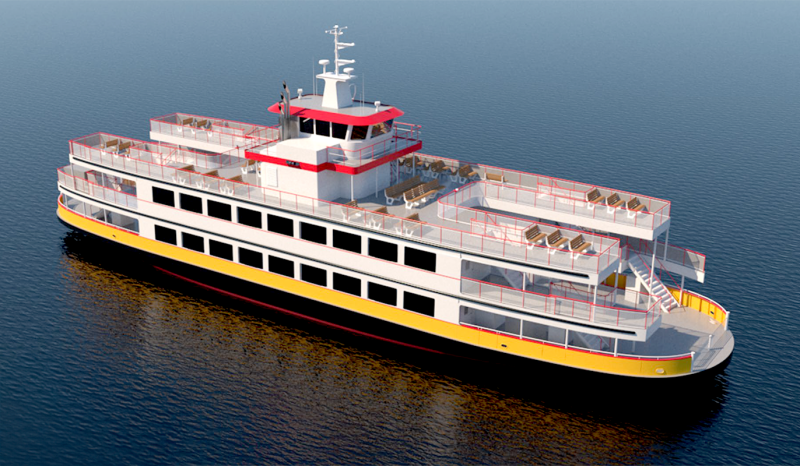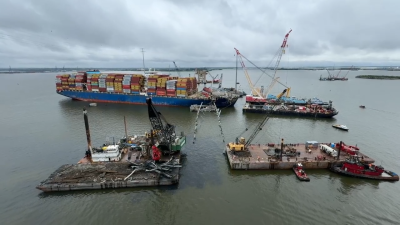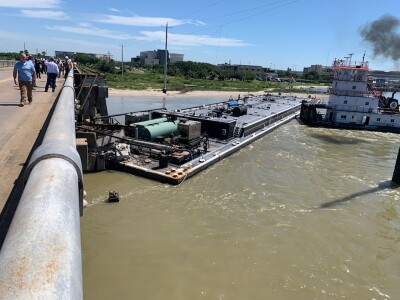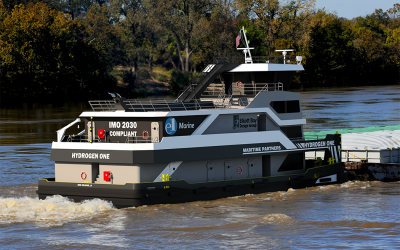The passenger vessel market is witnessing a transformative period driven by technological advancements and a renewed focus on sustainability.
The market is diverse, ranging from small inflatable dive boats to massive 5,000-passenger casino vessels. The U.S. Coast Guard (USCG) has categorized commercial passenger vessels into various classes based on their service types, regulated under different sub- chapters in Chapter 46 of the Code of Federal Regulations (CFR).
In the past year, significant developments have shaped the ferry and other passenger vessel sectors. There’s been a notable shift towards alternative propulsion methods, with numerous conver- sions and repowering projects underway.
Vessels operating on shorter, fixed routes are optimal for electric operation, and we’re starting to see that play out
in a number of ferry newbuilds. Batterypacks can fully power ferries for the duration of their journey, and predictable routes allow for efficient deployment of shoreline charging infrastructure. Hybrid-electric conversions, construction of environmentally friendly propulsion methods, and infrastructure upgrades for electrification to support vessel recharging are modernizing ferry operations around the country.
In April, the U.S. Department of Transportation’s Federal Transit Administration (FTA) announced the availability of $316 million to support and modernize passenger ferry service in communities across the country. Within that FTA support, the Electric or Low Emitting Ferry Program provides federal support to transit agencies to buy ferries that reduce emissions by using alternative fuels or on-board energy storage systems. For fiscal year 2024, $49 million is available.
FERRIES
As travel and tourism approach pre-2020 levels, passenger vessels are experiencing increased activity. This recovery is evident in Washington State Ferries ridership, which saw a 7.4% increase in 2023, with over 1.3 million more riders compared with 2022. The rise is attributed to a significant increase in walk-on passengers, reflecting a resurgence in tourism and in-person work.
Washington State Ferries, the largest ferry system in the U.S., is converting its ferry fleet to hybrid mechanical-electrical systems. With $1.33 billion in funding secured, the program aims to convert 16 vessels of its fleet, through additional funding of $2.37 billion, which is still required for completion.
In addition to Washington State, other regions are also embracing hybrid and electric ferry technology. New York City announced plans for its first hybrid-electric ferry, set to begin operations in 2024, while initiatives like the Mackinac Island Ferry Co.’s (MIFC) electric conversion project in Michigan showcase the industry’s commitment to reducing greenhouse gas emissions. MIFC is receiving a $3.06 million grant from the Michigan’s Fuel Transformation Program to convert the 84' ferry Chippewa to electric power. The project will replace the ferry’s 1988 diesel engines with new electric propulsion motors, resulting in a significant reduction in greenhouse gas emissions.
"Converting a ferry in the Mackinac fleet to electric will build on our clean-energy leadership and help us achieve the goals of the MI Healthy Climate Plan to make our state carbon-neutral by 2050,” Michigan’s governor, Gretchen Whitmer, said when the conversion of the Chippewa was announced.
In December 2023, Wärtsilä said it has agreed to work on a pioneering project to build the first zero-emission high-speed ferries in the U.S. Wärtsilä will help develop the ferries with the San Francisco Bay Area Water Emergency Transportation Authority (WETA), which operates the San Francisco Bay Ferry system. Wärtsilä will collaborate with the WETA project team to finalize vessel and charging system concepts. Also in the Bay area, all-electric hydrofoil boat company Navier announced last month a first-of-its-kind pilot program to provide water transit services to San Francisco Bay area commuters.
Senesco Marine, North Kingston, R.I., is building a pair of hybrid ferries for the Maine State Ferry Service. “They are the first-ever hybrid ferries in the Northeast,” said Senesco Marine’s Ted Williams. One will operate out of Rockland and the other from Portland. The ferry for Rockland should be launched in the spring of 2024, while the Portland-based ferry is scheduled to be launched a few months later.
In Gee’s Bend, Ala., the Gee’s Bend Ferry was retrofitted to 100% lithium-ion battery repower. The ferry runs on two banks of 135 kWh batteries and new 480 VAC induction motors for propulsion.
Netherlands-based Damen Shipyards has been awarded a contract to build four fully electric passenger/car ferries for British Columbia Ferry Services. The order will raise the total number of ferries that Damen has supplied to BC Ferries in recent years to 10. As opposed to the previous ferries, these latest additions will be the first to use 100% electrical power.
CRUISES
In February, American Queen Voyages (AQV) ceased operations and filed for bankruptcy. AQV attributed the closure to changes in travel preferences affecting the overnight cruise industry, rendering the company financially unsustainable.
American Cruise Lines (ACL) will acquire all four of the paddle wheelers that made up AQV’s river cruise fleet, including the company’s largest and flagship vessel, the American Queen, along with the American Countess, the American Empress and the American Duchess. ACL was the top bidder for the vessels, with all four vessels selling for just over $5.5 million.
In addition to the acquisition, ACL announced it has two new small ships coming in 2025, the American Patriot and the American Pioneer. The 125-passenger sisterships represent the fifth and sixth ships in the com- pany’s Project Blue series of 12 small ships for the U.S. market. The ships will be built at the company’s affiliated shipyard, Chesapeake Shipbuilding, Salisbury, Md.
SUBSEA
OceanGate’s submersible Titan has drawn international attention to the safety of deep ocean exploration. The circumstances that led to the failed voyage, in which five lives were lost, will also have complex legal ramifications.
The implosion raised questions about whether a submersible vessel being used for tourism or commerce must be classified by a third-party engineering firm such as Lloyd’s Register.

